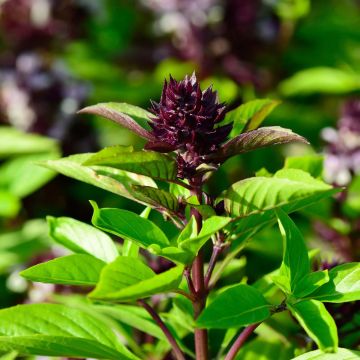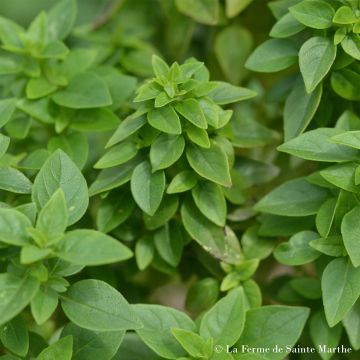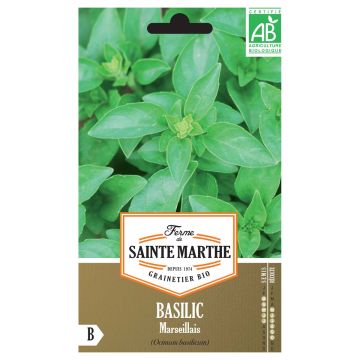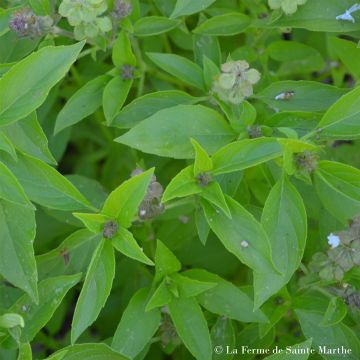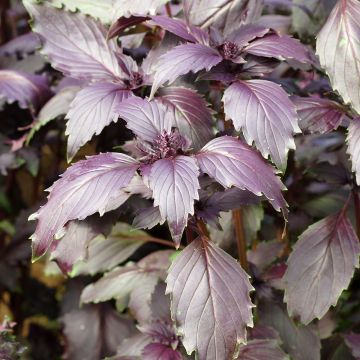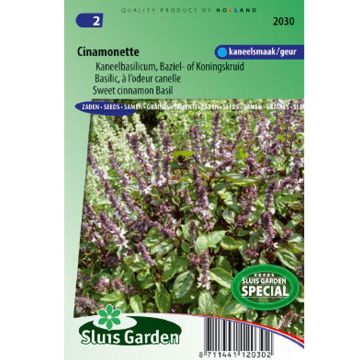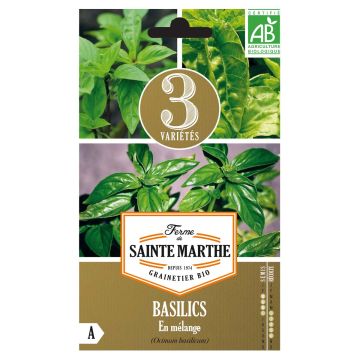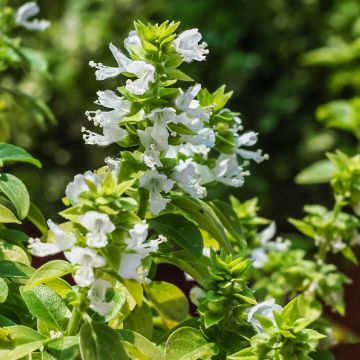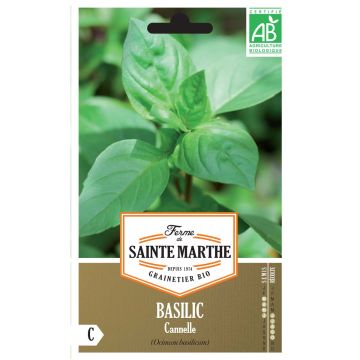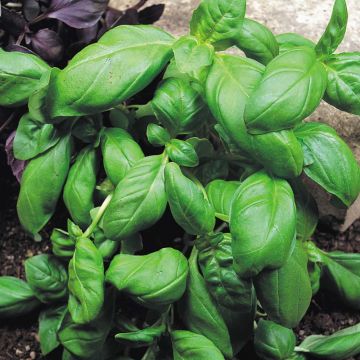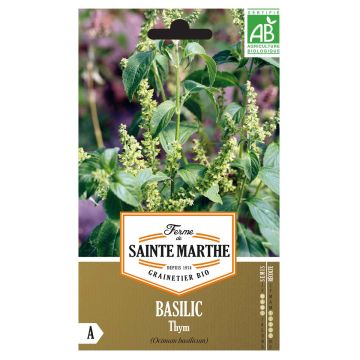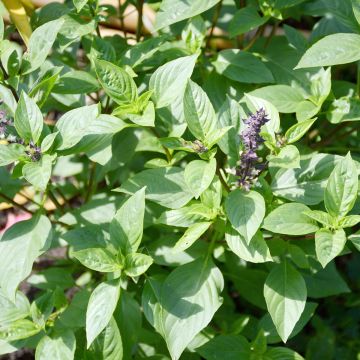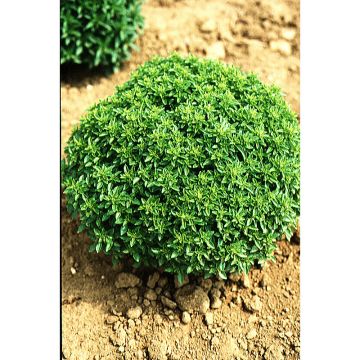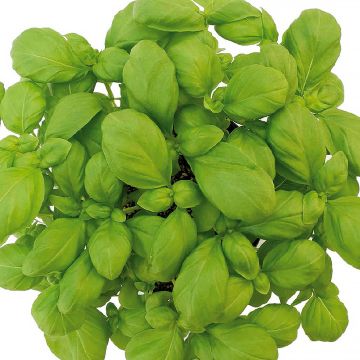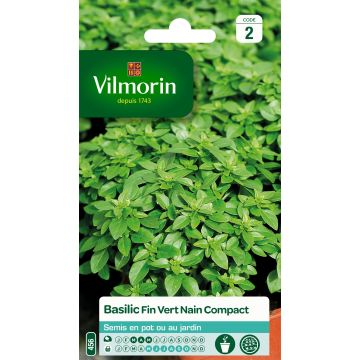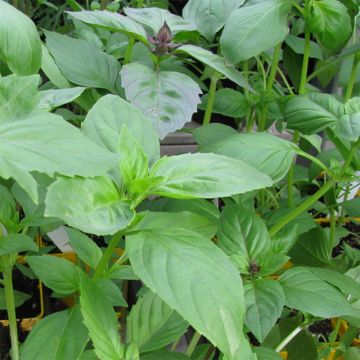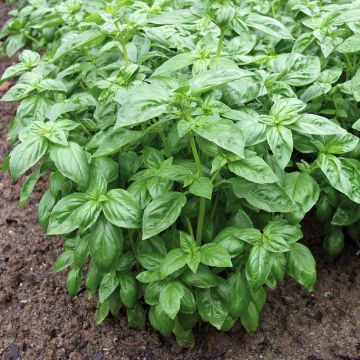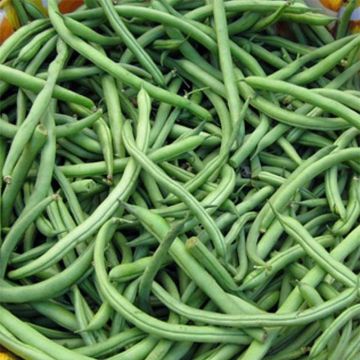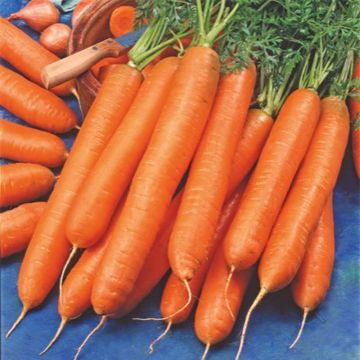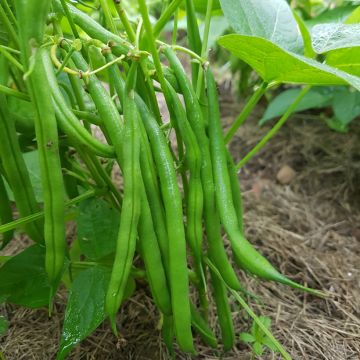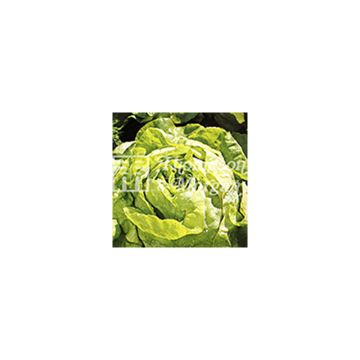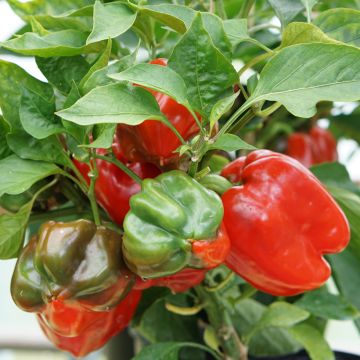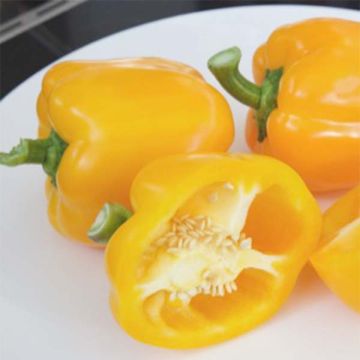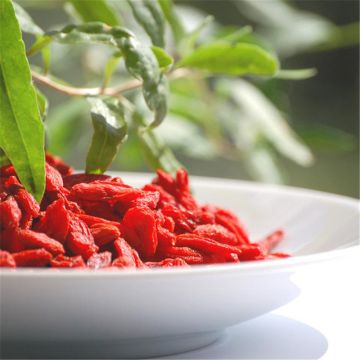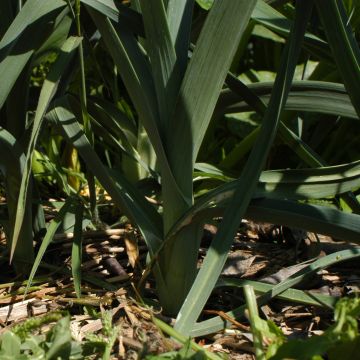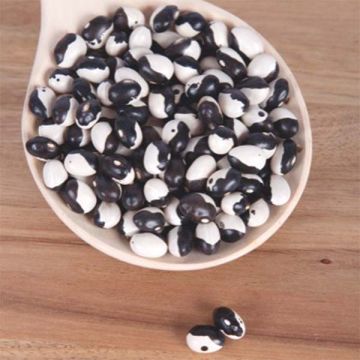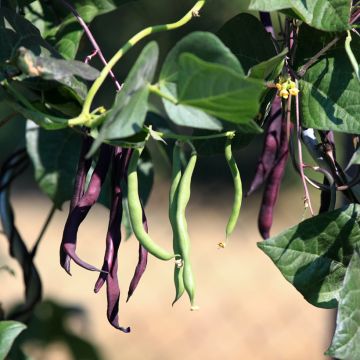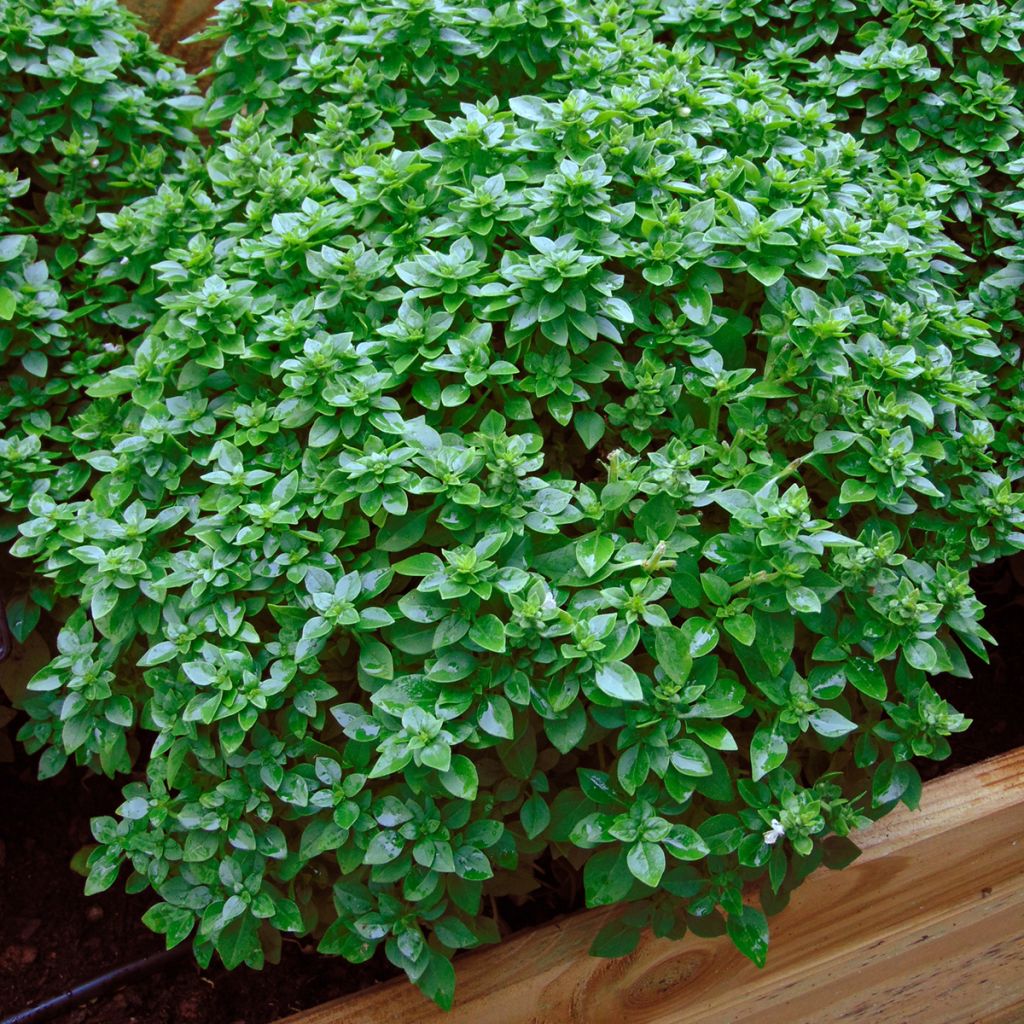

Pistou Basil - Ocimum basilicum
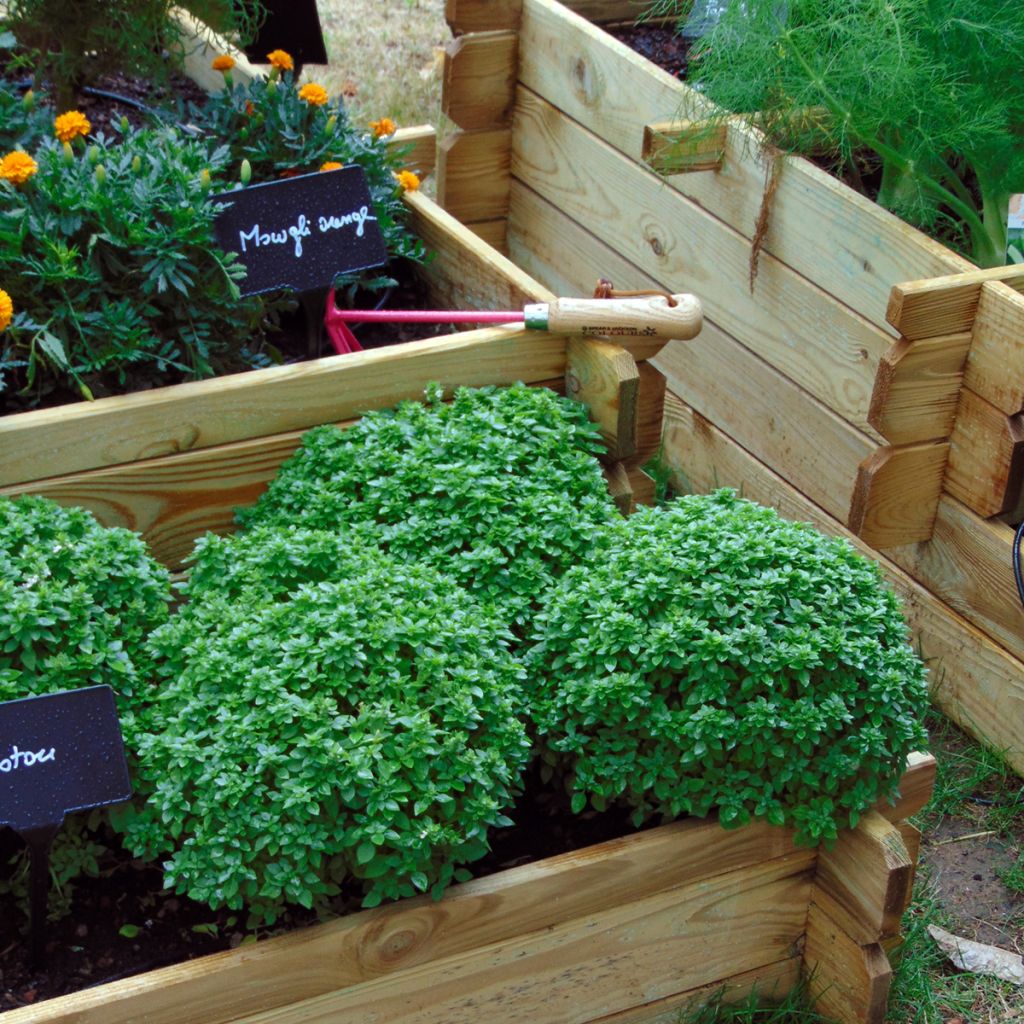

Pistou Basil - Ocimum basilicum
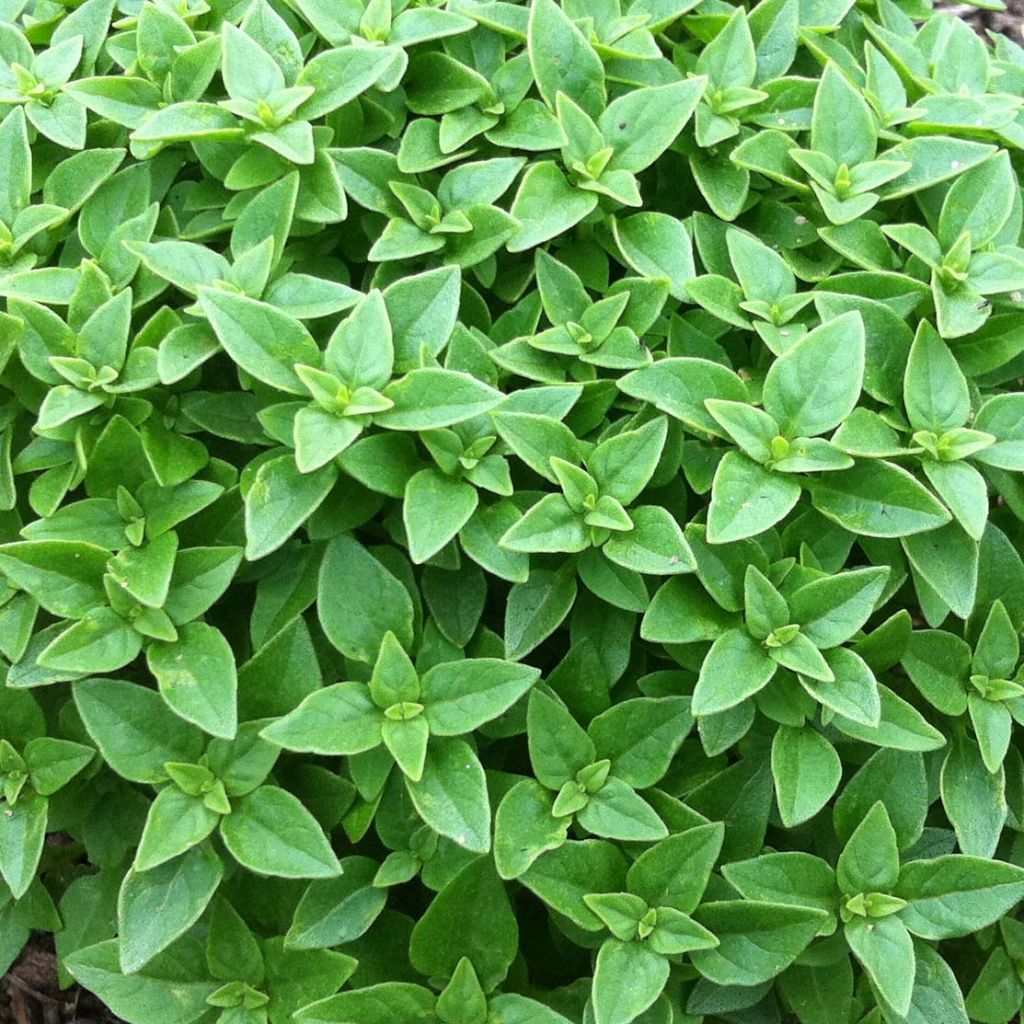

Pistou Basil - Ocimum basilicum
Pistou Basil - Ocimum basilicum
Ocimum basilicum Pistou
Sweet Basil, Common Basil, Basil
Why not try an alternative variety in stock?
View all →This plant carries a 6 months recovery warranty
More information
We guarantee the quality of our plants for a full growing cycle, and will replace at our expense any plant that fails to recover under normal climatic and planting conditions.
Seed-only orders are dispatched by sealed envelope. The delivery charge for seed-only orders is €3.90.
Description
The Pistou Basil is a 30 cm (12in) tall herbaceous condiment plant. This compact variety is grown for its small, very fine, ovate leaves with a powerful fragrance. They are consumed raw, finely chopped in salads and form the base of the pistou soup. Sow from March to April for a harvest 3 months later
The use of basil in the Mediterranean basin dates back to Antiquity. Among the Romans, this plant was the emblem of lovers, while among the Greeks, it symbolised hatred and misfortune! Basil is a condiment plant used to flavour and enhance dishes. Basil is rich in essential oil and has soothing, anti-inflammatory, and stimulating properties.
Basil will need a supply of well-decomposed compost (3 kg/m²) in late autumn or early spring.
Harvest: Between July and October, basil is harvested as needed and as it develops.
Storage: Basil can be kept fresh for a few days in a glass filled with water. It can be dried in the shade and stored in an airtight jar, but unfortunately, it loses some of its fragrance.
Gardener's tip: Weed and hoe regularly. Pinch the flowering stems to encourage new shoots. The scent of its leaves repels mosquitoes.
.
Report an error about the product description
Pistou Basil - Ocimum basilicum in pictures
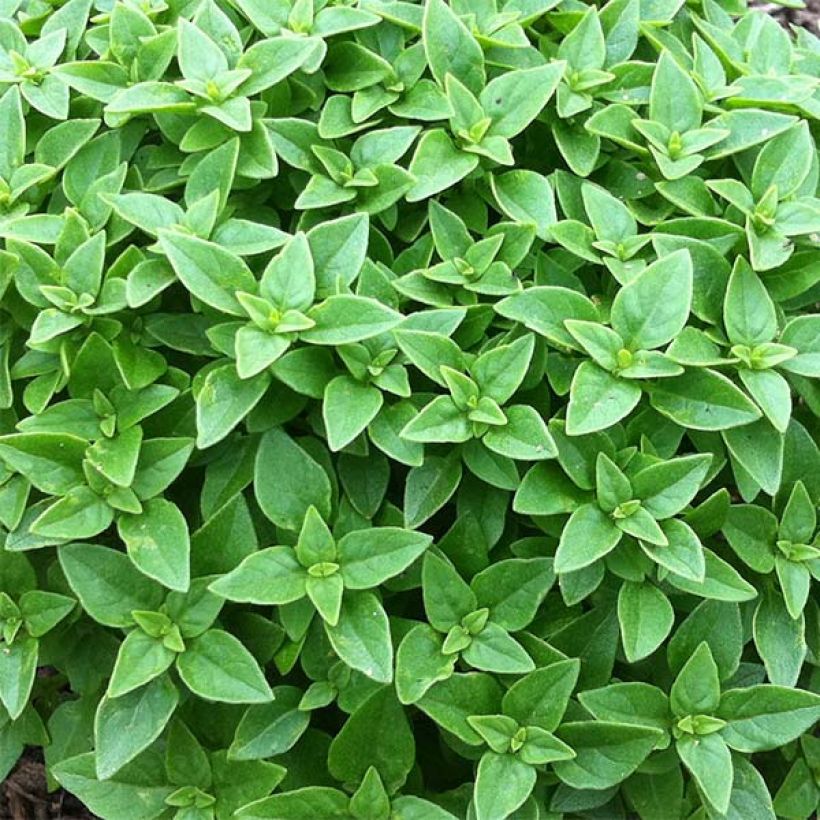

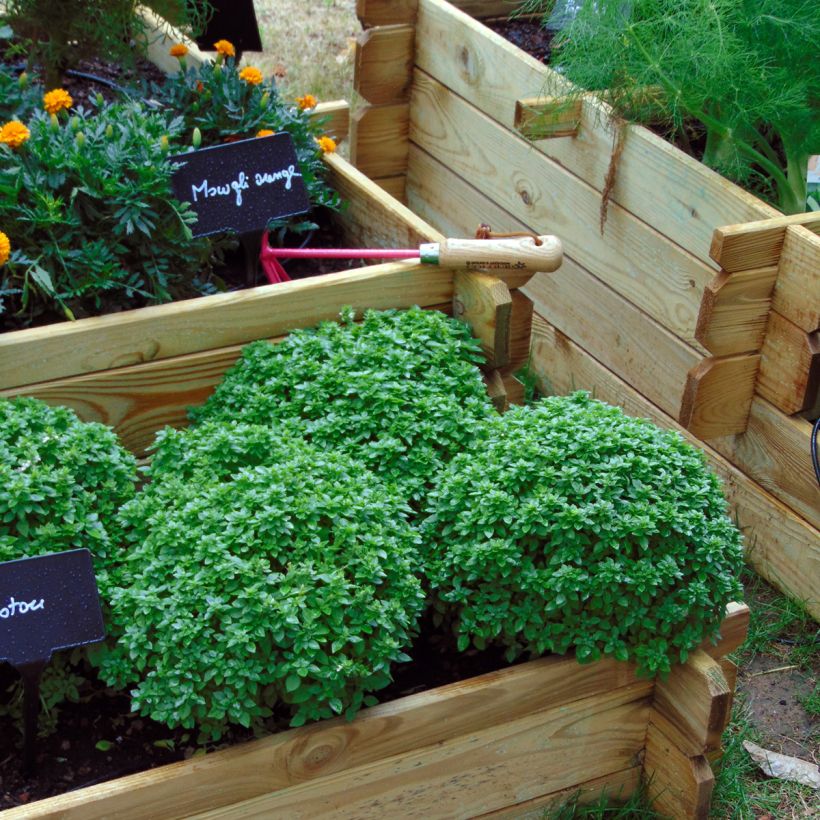

Harvest
Plant habit
Foliage
Botanical data
Ocimum
basilicum
Pistou
Lamiaceae
Sweet Basil, Common Basil, Basil
Cultivar or hybrid
Annual
Other Basil seeds
Planting and care
Sowing and maintenance:
Basil likes a fresh and loose soil, rich in humus. This plant also needs a semi-shaded exposure to grow well. Basil is sensitive to direct sunlight as it tends to burn the leaves. Basil can be grown in the vegetable garden, but it adapts very well to being grown in a pot in a conservatory or on a balcony.
Sowing: in spring, March, April and May, directly in place. Sow thinly in a flat furrow about 10 cm (4in) wide and 2 cm (1in) deep. The rows should be spaced 25 cm (10in) apart. Cover the seeds with the soil pushed aside along the furrow, then water. Germination takes between 10 to 15 days. As soon as the first plants appear, thin lightly. The more staggered the sowing, the longer the harvesting period will be. You can sow in a pot and then transplant as soon as the plant reaches 10 cm (4 to 6 leaves) tall. Basil can be kept in a pot in the kitchen if it is bright.
Maintenance: basil requires regular watering (or preventive mulching) when the soil dries out. It is the lack of water (water stress) that can cause basil to bolt. Pinch off the flower buds as soon as they appear to promote leaf production. Basil is susceptible to powdery mildew, grey rot, and aphids. To prevent rot and mildew, reduce watering and thin out the planting. For aphids, you can treat the plants with a mixture of water and olive oil.
Seedlings
Care
Intended location
-
, onOrder confirmed
Reply from on Promesse de fleurs
Vegetable seeds
Haven't found what you were looking for?
Hardiness is the lowest winter temperature a plant can endure without suffering serious damage or even dying. However, hardiness is affected by location (a sheltered area, such as a patio), protection (winter cover) and soil type (hardiness is improved by well-drained soil).

Photo Sharing Terms & Conditions
In order to encourage gardeners to interact and share their experiences, Promesse de fleurs offers various media enabling content to be uploaded onto its Site - in particular via the ‘Photo sharing’ module.
The User agrees to refrain from:
- Posting any content that is illegal, prejudicial, insulting, racist, inciteful to hatred, revisionist, contrary to public decency, that infringes on privacy or on the privacy rights of third parties, in particular the publicity rights of persons and goods, intellectual property rights, or the right to privacy.
- Submitting content on behalf of a third party;
- Impersonate the identity of a third party and/or publish any personal information about a third party;
In general, the User undertakes to refrain from any unethical behaviour.
All Content (in particular text, comments, files, images, photos, videos, creative works, etc.), which may be subject to property or intellectual property rights, image or other private rights, shall remain the property of the User, subject to the limited rights granted by the terms of the licence granted by Promesse de fleurs as stated below. Users are at liberty to publish or not to publish such Content on the Site, notably via the ‘Photo Sharing’ facility, and accept that this Content shall be made public and freely accessible, notably on the Internet.
Users further acknowledge, undertake to have ,and guarantee that they hold all necessary rights and permissions to publish such material on the Site, in particular with regard to the legislation in force pertaining to any privacy, property, intellectual property, image, or contractual rights, or rights of any other nature. By publishing such Content on the Site, Users acknowledge accepting full liability as publishers of the Content within the meaning of the law, and grant Promesse de fleurs, free of charge, an inclusive, worldwide licence for the said Content for the entire duration of its publication, including all reproduction, representation, up/downloading, displaying, performing, transmission, and storage rights.
Users also grant permission for their name to be linked to the Content and accept that this link may not always be made available.
By engaging in posting material, Users consent to their Content becoming automatically accessible on the Internet, in particular on other sites and/or blogs and/or web pages of the Promesse de fleurs site, including in particular social pages and the Promesse de fleurs catalogue.
Users may secure the removal of entrusted content free of charge by issuing a simple request via our contact form.
The flowering period indicated on our website applies to countries and regions located in USDA zone 8 (France, the United Kingdom, Ireland, the Netherlands, etc.)
It will vary according to where you live:
- In zones 9 to 10 (Italy, Spain, Greece, etc.), flowering will occur about 2 to 4 weeks earlier.
- In zones 6 to 7 (Germany, Poland, Slovenia, and lower mountainous regions), flowering will be delayed by 2 to 3 weeks.
- In zone 5 (Central Europe, Scandinavia), blooming will be delayed by 3 to 5 weeks.
In temperate climates, pruning of spring-flowering shrubs (forsythia, spireas, etc.) should be done just after flowering.
Pruning of summer-flowering shrubs (Indian Lilac, Perovskia, etc.) can be done in winter or spring.
In cold regions as well as with frost-sensitive plants, avoid pruning too early when severe frosts may still occur.
The planting period indicated on our website applies to countries and regions located in USDA zone 8 (France, United Kingdom, Ireland, Netherlands).
It will vary according to where you live:
- In Mediterranean zones (Marseille, Madrid, Milan, etc.), autumn and winter are the best planting periods.
- In continental zones (Strasbourg, Munich, Vienna, etc.), delay planting by 2 to 3 weeks in spring and bring it forward by 2 to 4 weeks in autumn.
- In mountainous regions (the Alps, Pyrenees, Carpathians, etc.), it is best to plant in late spring (May-June) or late summer (August-September).
The harvesting period indicated on our website applies to countries and regions in USDA zone 8 (France, England, Ireland, the Netherlands).
In colder areas (Scandinavia, Poland, Austria...) fruit and vegetable harvests are likely to be delayed by 3-4 weeks.
In warmer areas (Italy, Spain, Greece, etc.), harvesting will probably take place earlier, depending on weather conditions.
The sowing periods indicated on our website apply to countries and regions within USDA Zone 8 (France, UK, Ireland, Netherlands).
In colder areas (Scandinavia, Poland, Austria...), delay any outdoor sowing by 3-4 weeks, or sow under glass.
In warmer climes (Italy, Spain, Greece, etc.), bring outdoor sowing forward by a few weeks.

































